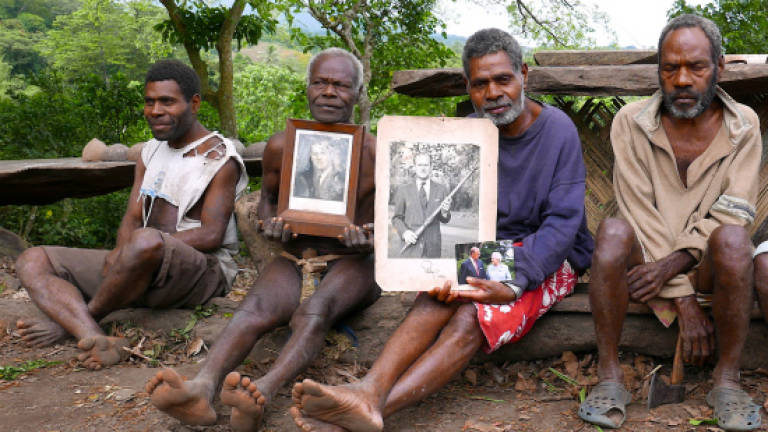Prince Philip worshippers pray for second coming

TANNA ISLAND: The retirement of Britain's Prince Philip from public life led world headlines on Thursday, but his most devout and remote followers have only just heard the news.
A tribe in Vanuatu was shocked and dismayed to discover on Saturday that the man they pray to as the son of an ancestral local mountain god will likely never return to their Pacific Island home.
The British royal, who said he would no longer take part in public engagements, is part of the fabric of life in the village of Younanen on Tanna Island.
Villagers pray to the 95-year-old prince daily, asking for his blessing on the banana and yam crops that make their primitive and extremely poor community self-sufficient.
"If he comes one day the people will not be poor, there will be no sickness, no debt and the garden will be growing very well," village chief Jack Malia said through an interpreter at the village's Nakamal, a traditional meeting place where the men gather to drink highly intoxicating kava.
Villagers have photos of the prince, including one dated 1980 of him holding a club they made for him and sent to London.
"Prince Philip has said one day he will come and visit us," said Malia, who took over from his father as village chief in 2003.
"We still believe that he will come but if he doesn't come, the pictures that I am holding ... it means nothing."
According to local legend, the pale-skinned son of the mountain god had ventured across the seas to look for a rich and powerful woman to marry.
Anthropologists believe Philip, who fitted the bill by marrying a powerful woman, became linked to the legend in the 1960s when Vanuatu was an Anglo-French colony known as the New Hebrides.
Villagers at the time were likely to have seen portraits of Philip and his wife, Queen Elizabeth II, at government offices and police stations run by colonial officials.
The belief that Philip was indeed the travelling son was reinforced in 1974 when he and the Queen made an official visit to the New Hebrides.
Now villagers hope for a second coming.
"Prince Philip is important to us because our ancestors told us that part of our custom is in England," Malia said.
The belief that Philip, also known as the Duke of Edinburgh, was indeed the travelling son was reinforced in 1974 when he and the Queen made an official visit to the New Hebrides. – Reuters